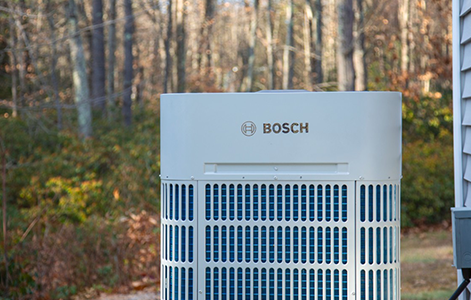Yes, heat pumps can be appropriate for New England's climate. Although New England experiences cold winters, heat pumps can still be effective and efficient at heating homes in this region. Heat pumps work by extracting heat from the air or ground outside and moving it indoors to heat your home. Even in cold weather, there is still heat in the air that can be used by a heat pump, although the efficiency of the system may decrease as the temperature drops.
Air conditioning systems have come a long way from the traditional bulky window units. Mini split systems, also known as ductless systems, are a prime example of this evolution. They are efficient, sleek, and adapt well to various architectural needs. As with many modern cooling and heating systems, mini splits offer a range of design and installation options. At A.J. LeBlanc Heating, we pride ourselves on installing all major mini split brands, including giants like Mitsubishi, LG, and Daikin. Let's delve into the different types of mini split air handlers available in the market:
Yes, a heat pump can replace a furnace, but the effectiveness of this replacement depends on a variety of factors including the climate, your home's insulation, and your heating and cooling needs. If the conditions are right, a properly designed heat pump system can be installed as a primary heat source. In New Hampshire, most heat pumps are installed as a dual fuel system. What is a dual fuel heating system? A dual fuel system combines the strengths of two different types of heating systems: a heat pump and a furnace (usually gas or oil). This combination aims to optimize energy efficiency and home comfort while minimizing energy costs. Here's how it works:
Heat Pumps and Electricity
Yes, heat pumps typically run on electricity. They are designed to transfer heat energy from a heat source to a heat sink. Unlike traditional heating systems that convert fuel or electricity directly into heat, a heat pump moves existing heat from one place to another. This operation usually makes heat pumps more energy-efficient compared to conventional heating and cooling systems.

A.J. LeBlanc Heating was at the forefront of Bosch's testing for the new IDS Ultra heat pump, a groundbreaking system designed for cold climates. The Bosch IDS Ultra boasts advanced features like 100% heating capacity at 5°F and functionality down to -13°F. With its Inverter Drive Compressor and Enhanced Vapor Injection (EVI) technology, the system provides ultra-efficient performance. It uses R-454B refrigerant for a reduced environmental impact, and offers quiet operation, with sound levels as low as 56 dB. These installations helped Bosch fine-tune the system before its official release.
Heat pumps are an energy-efficient way to heat and cool your home, but if you’ve never experienced one before, their operation—especially in cold weather—can seem a little strange. One of the most misunderstood aspects of heat pumps is defrost mode. If you’ve ever noticed loud noises, steam rising, or the outdoor fan stopping unexpectedly, don’t worry—this is normal!
